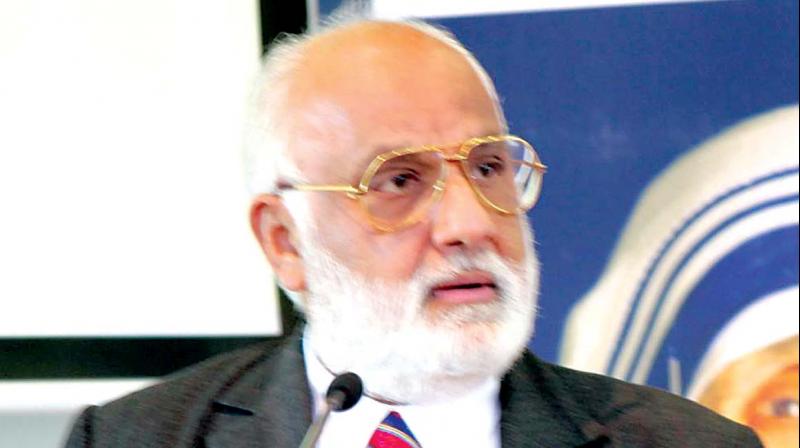Privileges of Prince of Arcot remain intact as HC dismisses PIL
The Nawab of Arcot all along supported the British Regime.

Chennai: Finding that the conferment of title ‘Prince of Arcot’ and maintenance of the residence, namely Amir Mahal which belongs to the government of India is maintained by the Central Public Works Department and payment of political pension by the British Indian government and continued by the government of India is not at all prohibited, the Madras high court has dismissed a PIL, which sought to withdraw the title and the privileges given to the Nawab of Arcot.
A division bench comprising Justices M.Sathyanarayanan and N.Seshasayee dismissed the Public Interest Litigation filed by S.Kumarvelu, claiming to be a social worker.
According to petitioner, the ‘Prince of Arcot’ claims himself to be a descendant of second Caliph Umar Ibn AI Khattab (from West Asia) about the Nawabadam of Arcot, which was established by Mughal Emperor Aurangzeb in 1692 and after the demise of 13th Nawab Gulam Muhammed Ghouse Khan in the year 1855, without any issues, the British East India Company annexed the Nawabdom by applying “The Doctrine of Lapse” in the year 1855. The Nawab of Arcot all along supported the British Regime and therefore, the British Government headed by Queen Victoria bestowed upon Azim Jah-one of the descendants of the 13th Nawab as political pensioner and also conferred a title “His Highness the Prince of Arcot in the year 1867 with several honours, privileges and stipends attached to the said title in perpetuity from 1911 and a government order to that effect has also been passed. Even after independence in the year 1947 and the title Prince of Arcot continued to be maintained in perpetuity and despite abolition of privy purse as well as recognition granted under Article 363 A of the Constitution of India, the title and privileges conferred by the then British Government continues,” he added.
The bench said Fort St George gazette dated April 18, 1871, was published conferring the title of ‘Prince of Arcot’ and it was also recognized by the Government after independence. Nawab Mohammed Abdul Ali was also recognized as successor to the title ‘Prince of Arcot’. The public (political) department has sent a communication to the Nawab Mohammed Abdul Ali stating among other things that the President's Orders derecognizing the rulers with effect from September 6, 1870, will apply only to those who come within Article 366 (22) of the Constitution of India and the Prince of Arcot does not come within this category. The Union government sent a communication to the Tamil Nadu government stating that it has decided to sanction political pension of Rs 1.50 lakh per annum and it will be paid until now to the ‘Prince of Arcot’ should be continued and consequently, a communication was also sent by the public (political pension II) department, the bench added.
The bench said the minister for home affairs in answering to an unstarred question dated June 10, 1998, on the floor of the Rajya Sabha, has also gave a statement that the title ‘Prince of Arcot’ was without investiture, rites, ornaments, territory or ceremonies whatsoever and he was in receipt of political pension of Rs 1.50 lakh per annum granted by the British government and continued by the government of India after independence and he does not belong to the category of princes/rulers/chiefs to whom Article 201, 362 and 366 (22) of the Constitution of India apply and further stated that the Government of India have provided a residence known as Amir Mahal, which was maintained by the Central PWD and the state government has also exempted him from the provisions of the Arms Act to posses certain fire arms, the bench added.
The bench said the government of India thought it fit to recognize the letters patent and the reply given by the home minister on the floor of the Rajya Sabha also discloses the fact that ‘Prince of Arcot’ was a mere title without any investiture, rights, ornaments, territory or ceremonies whatsoever.

